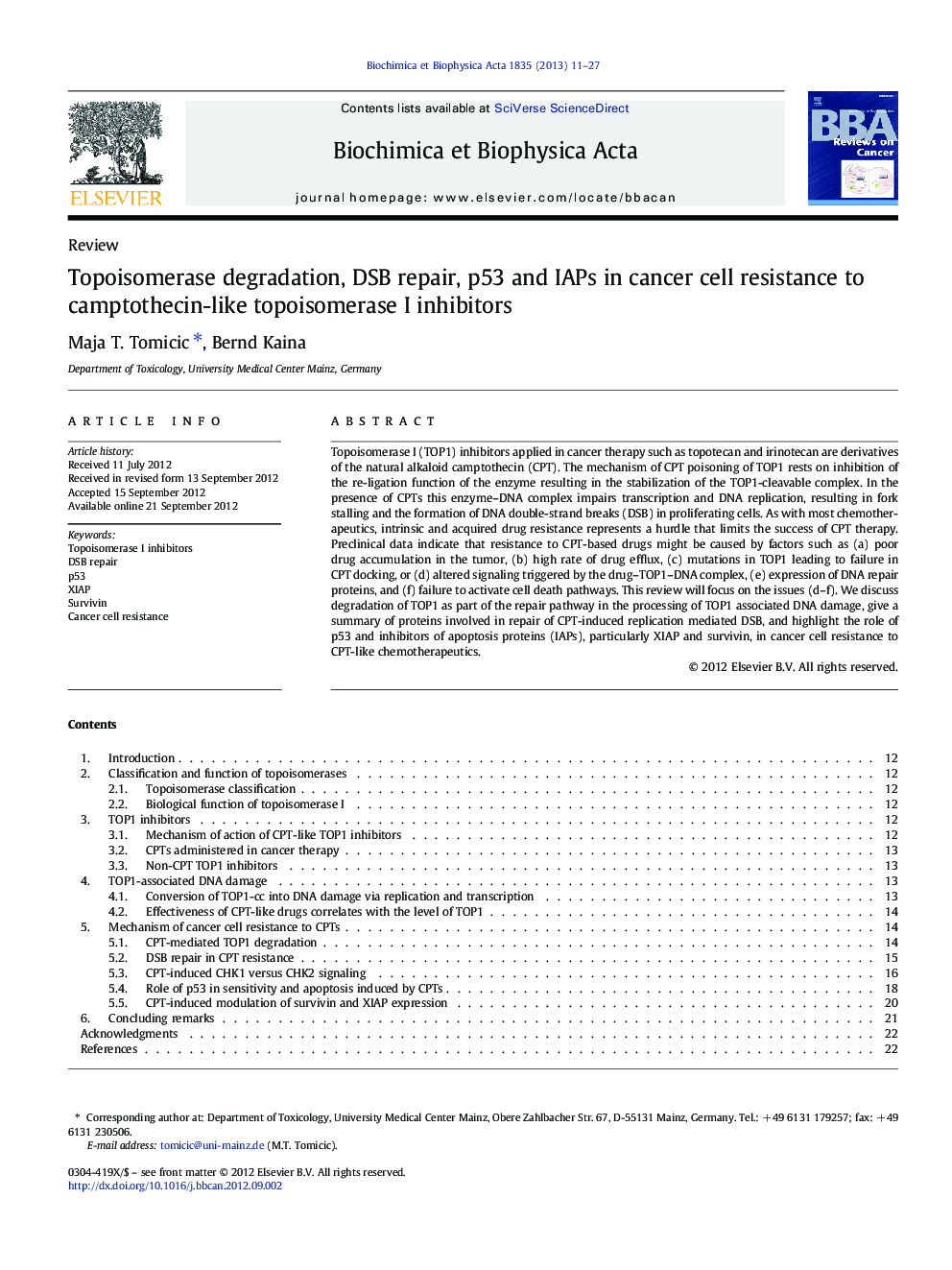| Article ID | Journal | Published Year | Pages | File Type |
|---|---|---|---|---|
| 2100917 | Biochimica et Biophysica Acta (BBA) - Reviews on Cancer | 2013 | 17 Pages |
Topoisomerase I (TOP1) inhibitors applied in cancer therapy such as topotecan and irinotecan are derivatives of the natural alkaloid camptothecin (CPT). The mechanism of CPT poisoning of TOP1 rests on inhibition of the re-ligation function of the enzyme resulting in the stabilization of the TOP1-cleavable complex. In the presence of CPTs this enzyme–DNA complex impairs transcription and DNA replication, resulting in fork stalling and the formation of DNA double-strand breaks (DSB) in proliferating cells. As with most chemotherapeutics, intrinsic and acquired drug resistance represents a hurdle that limits the success of CPT therapy. Preclinical data indicate that resistance to CPT-based drugs might be caused by factors such as (a) poor drug accumulation in the tumor, (b) high rate of drug efflux, (c) mutations in TOP1 leading to failure in CPT docking, or (d) altered signaling triggered by the drug–TOP1–DNA complex, (e) expression of DNA repair proteins, and (f) failure to activate cell death pathways. This review will focus on the issues (d–f). We discuss degradation of TOP1 as part of the repair pathway in the processing of TOP1 associated DNA damage, give a summary of proteins involved in repair of CPT-induced replication mediated DSB, and highlight the role of p53 and inhibitors of apoptosis proteins (IAPs), particularly XIAP and survivin, in cancer cell resistance to CPT-like chemotherapeutics.
